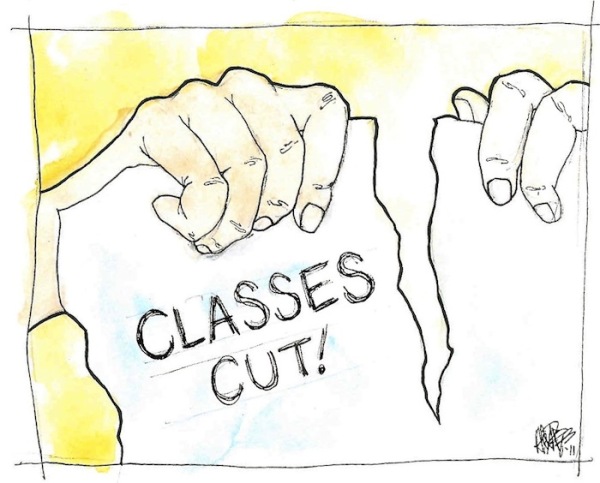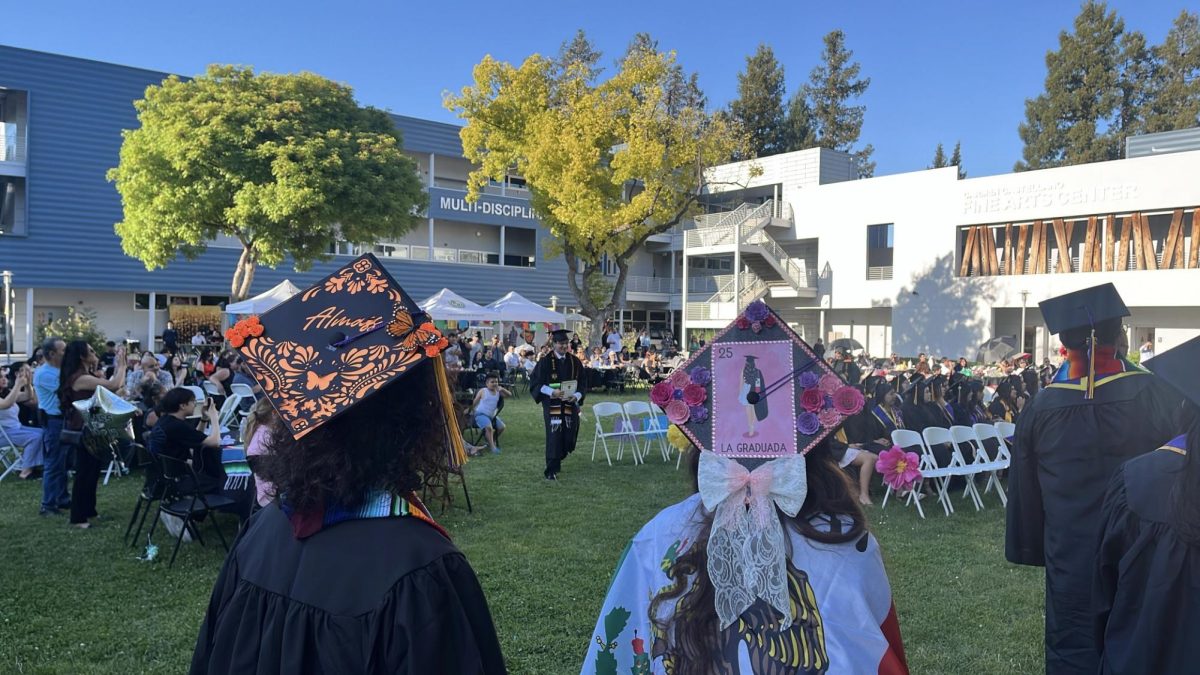Faculty leader says more input should have been sought
By Larry L. Harris
Times staff
A rebuke of the chancellor over class cuts was issued at the April 12 Board of Trustees meeting.
David Yancey, president of Faculty Union Local 6157, spoke during the public comment section and expressed displeasure with new Chancellor Deborah Budd’s decision to eliminate classes (because of low enrollment) to achieve “efficiency of course offerings” without input from faculty and others.
Most of those classes at San Jose City College have since been reinstated, according to an April 14 email from Vice President of Academic Affairs Duncan Graham to all faculty and administrators. “After careful deliberations with President Breland,” the email reads, “we have decided that in order to help our students progress towards their academic and career goals, and to make sure that the college’s instructional program is in compliance with both Title 5 and ACCJC accreditation standards, courses that are in a pending status for the fall 2016 schedule due to being out of compliance with mandated updates, (most classes) will be reinstated in the fall 2016 schedule (subject to conditions).”
`The “newly designed process” used in the decision to eliminate classes has “caused confusion, fear, anxiety and increasing distrust among faculty and with the district and will surely have a negative impact on our students,” Yancey said at the meeting. “Our students plan their schedule around their rigid work hours and are likely to take fewer classes each semester when their classes are cancelled.”
Yancey said the process was flawed without constituency involvement. He said the chancellor’s office gathered administrators from SJCC and Evergreen Community College to talk about “enrollment management” as a tool to achieve efficiency, but did not include faculty or subject matter experts.
SJCC President Byron Breland was present at the chancellor’s meeting with district administrators meeting. “The chancellor’s office was informed of the many enrollment strategies that we utilize at the colleges to support student success and achievement,” Breland said, “as they relate to degree attainment and career technical training, transfer to four-year colleges/universities and foundational skills development.”
The chancellor defended the process.
“The deans, as they develop the schedule, have the right of assignment,” Budd said. “It is the administrators that develop schedules. Certainly curriculum is developed by faculty, and programs are developed by faculty as part of their responsibility. As far as faculty being involved, I think certainly my understanding is the deans have worked with faculty as they develop the schedule, and I think the piece that maybe could have used more time was really being able to comb through the schedule with faculty, so they could see course-taking patterns and how we could better serve our students.”
Yancey suggested the damage done by initially cutting the classes could be repaired.
“Slow the process down,” he said, “and delay the implementation until further discussion and input from the constituency groups can be gathered.”
Yancey went further with his rebuke.
“The chancellor’s office needs to slow down, understand the inclusive nature of our culture, involve all constituency groups in the process and allow time for the process to work,” the SJCC history professor said. “We (faculty, staff, the college) are willing to work together to achieve this efficiency goal.”
In a later interview, chancellor Budd reiterated and said, “As we look at our strategic schedule and offerings it will be a collaboration of faculty and administration. “







